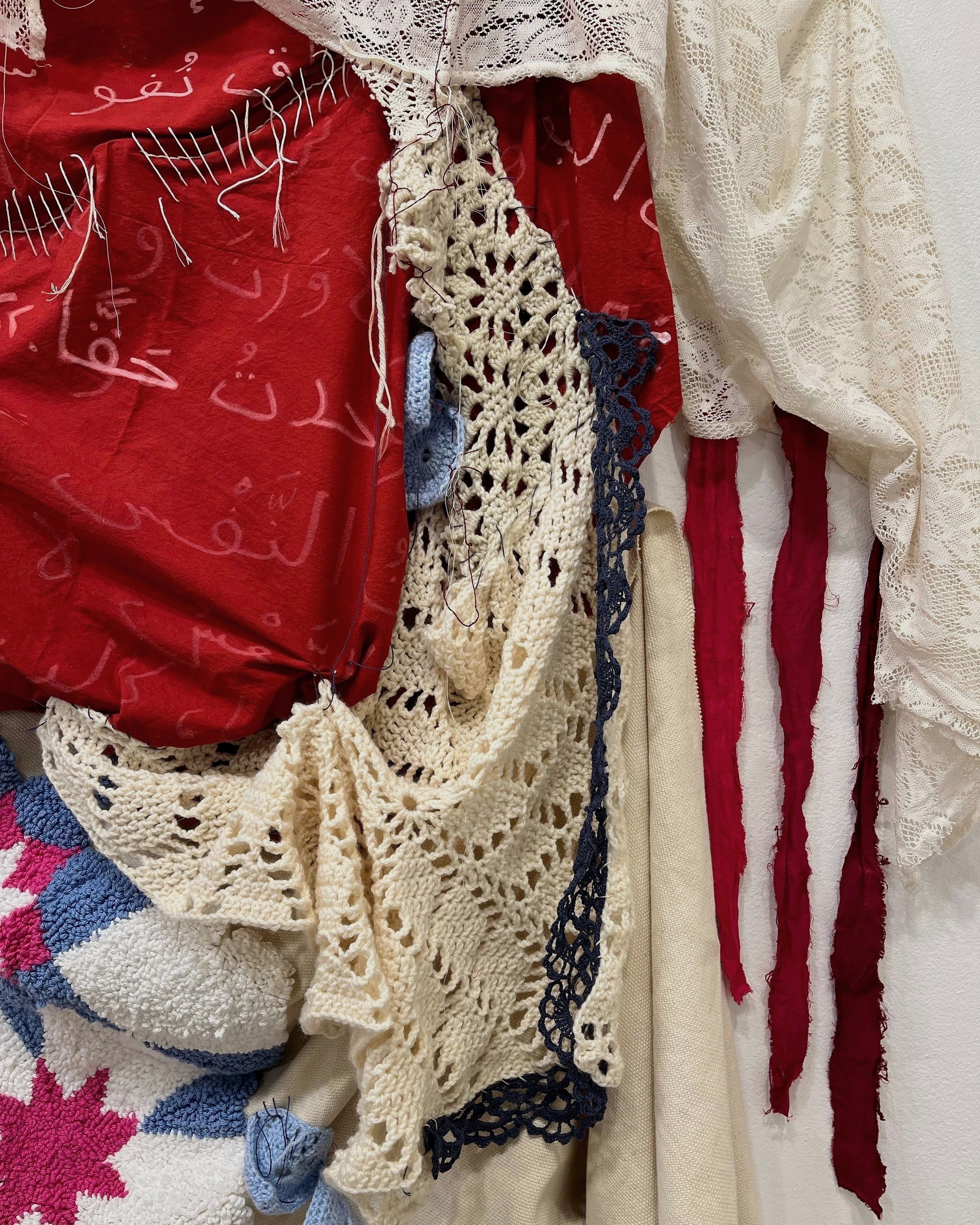




Legacies in Transition, 2022
Dyed muslin, cotton fabric, monks cloth, latch hook mesh, acrylic yarn, cotton yarn, embroidery thread, crochet thread, fabric marker
7.5 x 6 x 3 ft.
Legacies in Transition explores the relationship between my cultural upbringing and my experience of gender. I am third generation Lebanese-American, and I am deeply proud of my culture. I am transgender, which is a significant aspect of my life and sense of self. Both of these identities bring me joy on their own, but I have struggled coming to terms with how they fit together. There is a desire to be good enough for both of them, but the two identities can sometimes be at odds; showing too much of one leaves no room for the other.
Kahlil Gibran was a Lebanese-American writer in the early 20th century. His work is famous within many Lebanese communities, for his writings connect with our cultural experiences and values. His poem On Self Knowledge is written in Arabic along the red muslin segment of the sculpture. This poem describes the vast sea that is the self, and how one should rush to seek it out and know it. The soul walks on many paths and contains many truths. It grows and it unfolds, and is constantly changing.
Gibran’s words struck a chord in me. If there are no bounds to the self, then there is room inside me to be both Lebanese and transgender. The difficulty now lies in learning how the two fit together, but it is not a fixed thing. If self is a sea, then it is fluid and bound to change with the tides of life, and so is this sculpture. It is an ongoing piece that will grow and change as I do, a living self portrait.
I am drawn to textiles, and the traditions of making them and the passing down of skills through generations. There are legacies within these mediums, some of which have been passed onto me. This piece uses many of them. All done by hand, among the processes used are openwork lace and filet crochet, embroidery, sewing, punch needle, latch hook, dying, and blocking.
Some of the patterns used reference traditional Middle Eastern motifs often seen in mosaics, rugs, and other textiles. Many of these motifs are said to have talismanic powers. The Najma (Star) pattern in the latch hook rug segment and the punch needle Kaokab (Planet) pattern are meant to bring good fortune. The representation of stars also serves to reference my namesake the Greek titan Atlas who was tasked with holding the sky. Atlas is my chosen name. It has significant personal meaning and relates directly to my decision to transition. The Kaokab pattern is stitched in the colors of the trans pride flag, large and central in the piece, uniting traditional imagery with my trans identity.